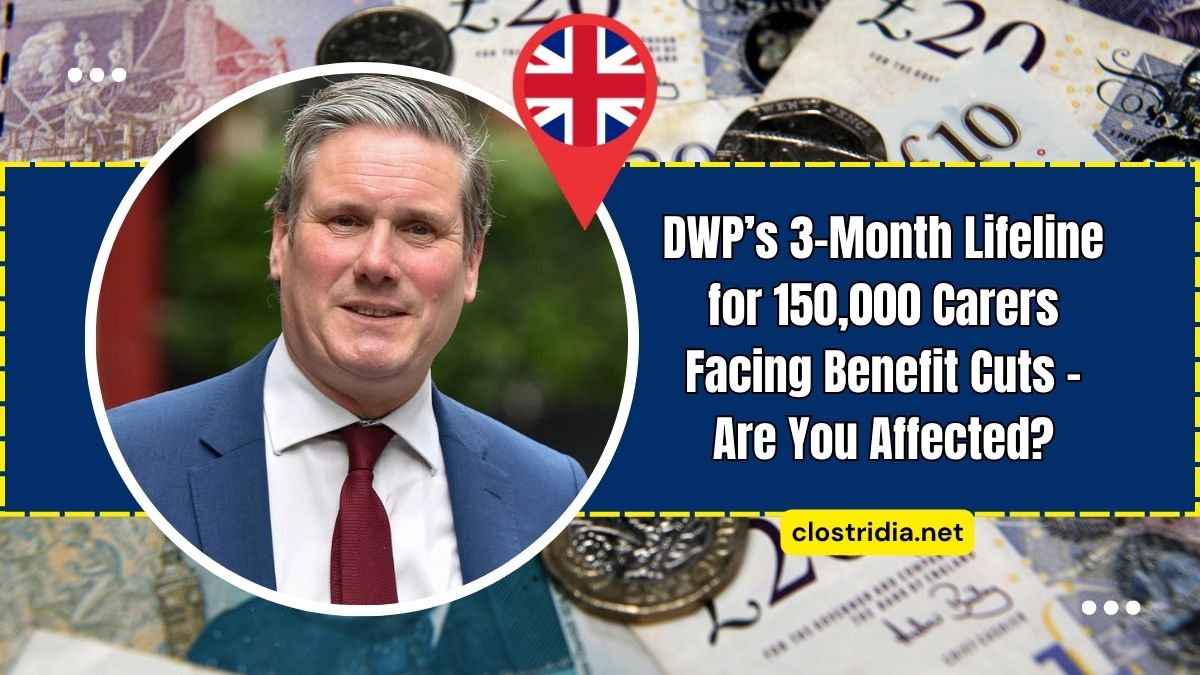In November 2026, over 150,000 households currently receiving Carer’s Allowance will begin to lose their payments due to significant changes in eligibility rules.
What is Carer’s Allowance?
Carer’s Allowance is a benefit provided to individuals who care for a disabled or sick relative for at least 35 hours a week.
Presently, this allowance is set at £83.30 per week, and recipients can also earn a secondary income through employment. However, if carers earn more than £196 per week, they will lose the entire allowance.
How to Qualify for Carer’s Allowance?
To qualify for Carer’s Allowance, one of the primary requirements is to care for someone who is receiving the daily living component of Personal Independence Payments (PIP).
This crucial link between PIP eligibility and Carer’s Allowance is being impacted by changes in the rules surrounding PIP claims.
Upcoming Changes to PIP Rules
In March 2025, the government announced a proposal to revise the criteria for Personal Independence Payments (PIP) claims. The goal of this reform is to cut £5 billion from welfare spending annually and encourage more people to return to work.
On Wednesday, the government introduced the Universal Credit and Personal Independence Payment Bill to Parliament, outlining stricter PIP eligibility standards. These proposed changes will make it harder for individuals to qualify for PIP, reducing the number of claimants.
Stricter Eligibility for PIP
Currently, individuals qualify for PIP based on their ability to perform various tasks such as cooking, cleaning, and managing finances. Under the new rules, applicants will need to score a minimum of four points on one specific daily living activity to qualify for PIP.
This change means that having minor difficulties in multiple areas may no longer suffice to meet the eligibility criteria. The government’s own impact assessment predicts that approximately 800,000 individuals could lose their PIP benefits, with an average annual loss of £4,500.
Impact on Carer’s Allowance
As a direct consequence of the tightening PIP eligibility criteria, around 150,000 carers will no longer qualify for Carer’s Allowance. This change is expected to leave many carers without financial support despite their ongoing care duties.
Safeguards for Existing Claimants
To mitigate the effects on current claimants, the Universal Credit and PIP Bill includes provisions to protect individuals who might lose their benefits under the new rules.
For example, if someone loses their PIP entitlement, they will continue to receive payments for 13 weeks as a safety net. This extended grace period applies to both PIP and Carer’s Allowance recipients, providing some time for adjustment.
While the 13-week transition period is longer than the previously planned four-week period, campaigners and advocacy groups, such as the disability equality charity Scope, have raised concerns about the long-term effects of these changes.
They argue that once payments stop, individuals with disabilities will still face the same extra living costs without adequate support.
The Trussell Trust, which operates a network of food banks, also expressed concerns. They believe that even though the protections will help a small group, many people will still face real-terms cuts in the support they receive.
Proposed Changes to Other Welfare Benefits
In addition to the PIP changes, the Universal Credit and PIP Bill proposes cuts to incapacity benefits for those on Universal Credit. Furthermore, the bill includes plans to raise the Universal Credit standard allowance above inflation over the next four years.
The government’s recent proposals to tighten PIP eligibility and reduce Carer’s Allowance recipients highlight the ongoing challenges faced by individuals providing unpaid care.
While the introduction of a 13-week grace period offers temporary relief, it may not be enough to offset the long-term effects on those who rely on these benefits.
Campaigners argue that more needs to be done to ensure that disabled people and their carers are not left in financial hardship due to these reforms.
FAQs
Will Carer’s Allowance payments stop for everyone?
No, Carer’s Allowance payments will stop for around 150,000 carers who no longer meet the new PIP eligibility criteria.
How long will the grace period last for those losing PIP or Carer’s Allowance?
The 13-week grace period will allow individuals who lose their PIP or Carer’s Allowance to continue receiving payments during the transition.
What impact will the new PIP rules have on carers?
The stricter PIP eligibility rules will result in around 150,000 carers losing their allowance, leaving many without financial support despite their caregiving duties.
